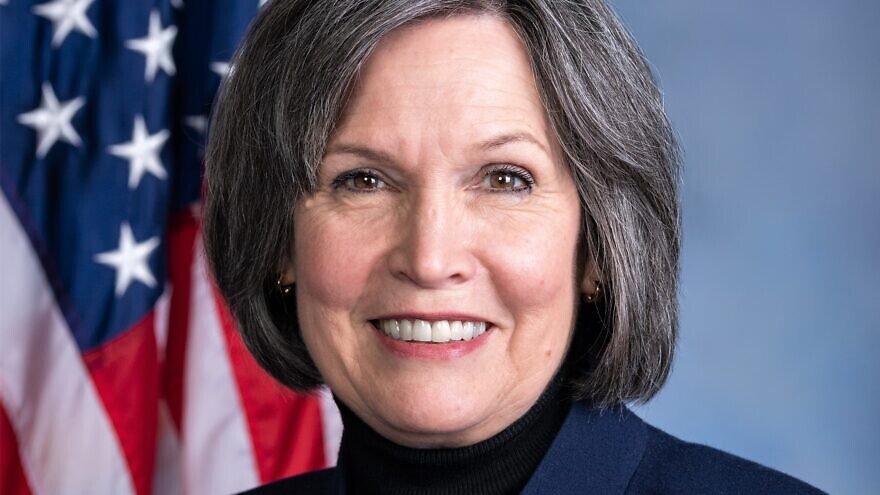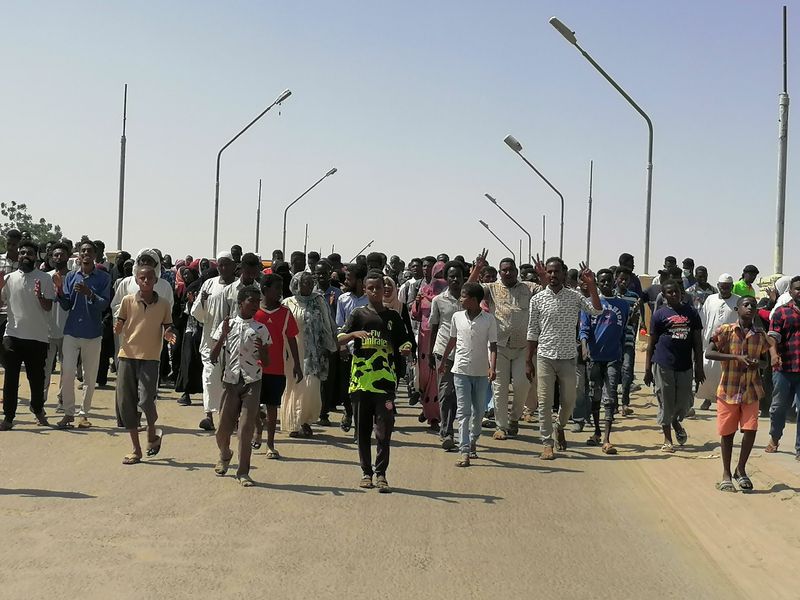Rep. Betty McCollum (D-Minn.), who backs the BDS movement, has long accused Israel of mistreating Palestinian children.

Betty McCollum (D-Minn.) Credit: U.S. House of Representatives Official Portrait.
(October 28, 2021 / JNS) Several progressive Democrats introduced a bill in the U.S. House of Representatives on Thursday criticizing the decision by Israel to declare six Palestinian NGOs as terror organizations.
Sponsored by Rep. Betty McCollum (D-Minn.), it recognizes the “important work” of the six Palestinian NGOs, censures the declaration by Israel and calls on the Biden administration “to condemn Israeli actions to repress Palestinian society.”
In a statement, McCollum said the decision by Israel “is a sign of incredible weakness more aligned with an authoritarian regime than a healthy democracy.”
“Israel’s decision to brand these prominent Palestinian civil society groups as terrorist organizations exposes the truth that Israel’s occupation is violent, immoral and unjust, and that peaceful efforts to defend the rights of Palestinian children, women, farmers or prisoners must be declared illegal,” she said.
Subscribe to The JNS Daily Syndicate by email and never miss our top stories
The resolution was co-sponsored by Reps. Alexandria Ocasio-Cortez (D-N.Y.), Rashida Tlaib (D-Mich.), Ilhan Omar (D-Minn.), Ayanna Pressley (D-Mass.), Cori Bush (D-Miss.), Chuy Garcia (D-Ill.), Marie Newman (D-Ill.), Raul Grijalva (D-Ariz.) and André Carson (D-Ind.).
McCollum, who backs the BDS movement, has long accused Israel of mistreating Palestinian children. In particular, she has supported the organization, Defense for Children International-Palestine, one of the groups that Israel blacklisted for its ties to the Popular Front for the Liberation of Palestine, a U.S.- and E.U.-designated foreign terror group.
Khaled Quzmar, general director of Defense for Children International-Palestine, thanked McCollum for the resolution, saying his organization is resolved “to continue defending Palestinian children and exposing human-rights violations inherent in Israel’s military occupation of Palestinians.”
Earlier this year, McCollum, chair of the House Defense Appropriations Subcommittee, introduced the “Defending the Human Rights of Palestinian Children and Families Living Under Israeli Military Occupation Act,” which called on America to bar aid to Israel for detaining Palestinian youth, destroying Palestinian homes or property, and/or annexing Palestinian-owned land.
By Anthony Galloway
October 28, 2021 —
Australia has asked Israel to explain why it has designated six Palestinian civil society groups as terrorist organisations after the move was criticised by the United Nations as an attack on human rights.
Australia’s embassy in Tel Aviv and the nation’s counter-terrorism ambassador Roger Noble have asked the Israeli government for an explanation, including evidence as to why the organisations should be declared terrorist groups.

Foreign Minister Marise Payne says she wants an explanation from Israel.
Israel last week said it made its decision based on evidence the six groups were a front for the Popular Front for the Liberation of Palestine (PFLP), which does not recognise the State of Israel and hijacked several passenger aircraft in the 1960s and 1970s.
The Israeli government accused the groups of allegedly financing the terror organisation and having employees who were closely linked to it
Asked in a Senate estimates hearing by Greens senator Janet Rice whether she was concerned by the designations, Foreign Minister Marise Payne said Australia had asked Israel for an explanation.
“Our post in Tel Aviv has made inquiries to the Israeli Ministry of Defence, which has made the designation, seeking further information,” Senator Payne said.
“We have been told that we will be provided with further details in due course, but that has not been the case so far.
“The Australian Ambassador for Counter-Terrorism has reinforced these points to the Israeli embassy this week, so I am seeking further information to determine the purpose of the designations.”
Senator Payne said it “isn’t unreasonable to seek this information – what the basis of the designation is and to understand the steps the Israeli authorities have taken”.
“And then I’ll be in a position to inform actions going forward,” she said.
The US State Department last week raised concern it had not been given notice before Israel made the announcement, adding it believed “respect for human rights, fundamental freedoms, and a strong civil society are critically important for responsible and responsive governance”.
The German foreign ministry said it was “very concerned by the Israeli decision” and it would have “broad political, legal and financial implications” for the groups.
UN human rights chief Michelle Bachelet said the decision would have “a chilling effect” on human rights defenders and it was an attack on freedoms of association, opinion and expression and the right to public participation.
Under Israeli law, jail time is mandated for members of designated terrorist groups as well as their supporters.
Ran Porat, a research associate with the Australia/Israel & Jewish Affairs Council, this week said the decision was warranted based on the groups’ direct affiliation with the PFLP.
“The close PFLP links of these groups have become increasingly clear internationally in the past few years, and acknowledged by governments,” Dr Porat said. “In many cases, arrests were made and trials were held where officials and employees of these groups were found guilty of terror-related activities.”
Bishop George Browning, president of the Australia Palestine Advocacy Network, said it was “outrageous” that Israel launched a direct attack on “six key, internationally recognised, reputable organisations”.
“Not only are Palestinians having to defend their human rights, but their very advocacy for human rights is being criminalised,” he said. “This arbitrary decision is only possible due to the ongoing military occupation of the West Bank, and further entrenches the apartheid system against Palestinians.”
In a joint statement this week, Australian human rights advocates, aid groups and the Australian Council of Trade Unions claimed the move was “designed to criminalise, persecute, and silence” Palestinian civil society and human rights defenders.
The country named six civil society groups as 'terrorist organisations'
:quality(70)/cloudfront-eu-central-1.images.arcpublishing.com/thenational/EYHEJ5LICHNEDW3RQ2LWD3ZKHM.jpg)
Michelle Bachelet, UN High Commissioner for Human Rights. AP
The National
Oct 26, 2021
Israel's naming of six leading Palestinian civil society groups as "terrorist organisations" is unjustified, the UN has said.
The country accused the groups of financing a leftist group called the Popular Front for the Liberation of Palestine (PFLP).
UN High Commissioner for Human Rights Michelle Bachelet called the decision an attack on human rights defenders, freedoms of association, opinion and expression and on the right to public participation.
She called for the move to be immediately revoked.
Ms Bachelet said anti-terrorism legislation should not be applied to legitimate human rights and humanitarian aid activities.
"The organisations ... face far-reaching consequences as a result of this arbitrary decision, as do the people who fund them and work with them," she said.
"The crucial work they perform for thousands of Palestinians risks being halted or severely restricted.”
She said the decision would have "a chilling effect" on human rights defenders.
"Claiming rights before a UN or other international body is not an act of terrorism. Advocating the rights of women in the occupied Palestinian territory is not terrorism and providing legal aid to detained Palestinians is not terrorism," Ms Bachelet said.
She said no evidence has been presented to support the allegations against the six groups, nor had any public process been conducted to establish the accusations.
Updated: October 26th 2021

















